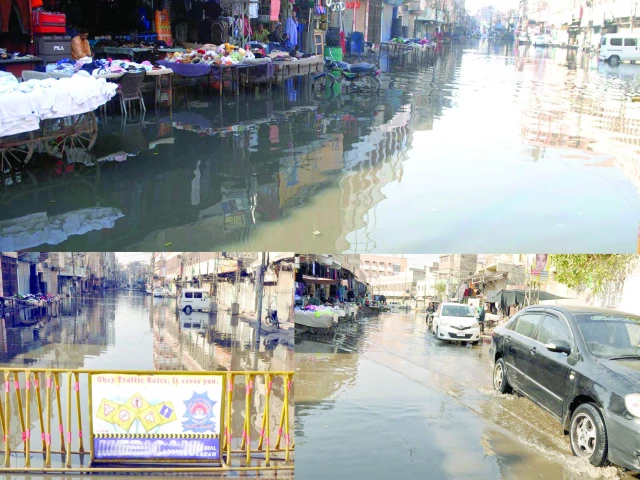Hyderabad:
Poor sanitation after recent monsoon rains has left the city covered with heaps of waste and stagnant water, causing serious drawbacks to residents. The failure of the municipal Hyderabad Corporation and its nine cities to carry out an appropriate elimination of waste and anti-fatty spraying have aggravated the situation, triggering the spread of mosquitoes, flies and other insects.
Consequently, local hospitals and private clinics report a wave of malaria, dengue, chikungunya, gastroenteritis, liver and stomach, older children and citizens being the most affected.
According to information, stagnant rainwater still stays in the units of Latifabad 7, 10 and 11, Airport Road, Bhatti Chowk, site area, Tando Mohammad Khan Road, Hali Road, Goods Naka, Murshidabad, Zeal Pak Colony and other low districts. Even public facilities such as Rani Bagh, the zoo, the Niaz stadium and several public schools are flooded. In areas where drainage is completed, heaps of waste and sludge continue to spread foul smells.
Residents complained that the already deteriorated roads have worsened, disturbing the flow of traffic and damaging vehicles.
Medical experts have expressed serious concerns about the impact of public health. Professor Dr. Muhammad Akram Bajwa, head of the gastroenterology department of Hyderabad civilian hospital, warned that contaminated water and poor sanitation feed an increase in hepatitis A and E, diarrhea, vomiting, gastric disorders, flu and skin infections. He advised citizens to boil drinking water, to consume homemade meals, to avoid street foods of lower quality and counterfeiting of cold drinks and to minimize exposure to rainwater.
Dr. Bajwa has also warned that dirty and stagnant water contains harmful bacteria that can penetrate wounds and cause serious illnesses. He added that the lack of anti-dengue and anti-malaria spraying contributes to the proliferation of mosquitoes and flies, increasing the risk of malaria, dengue and chikungunya.




